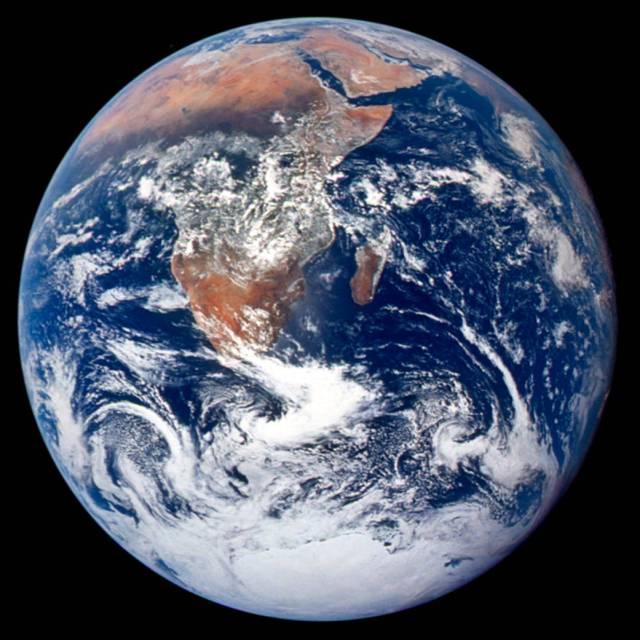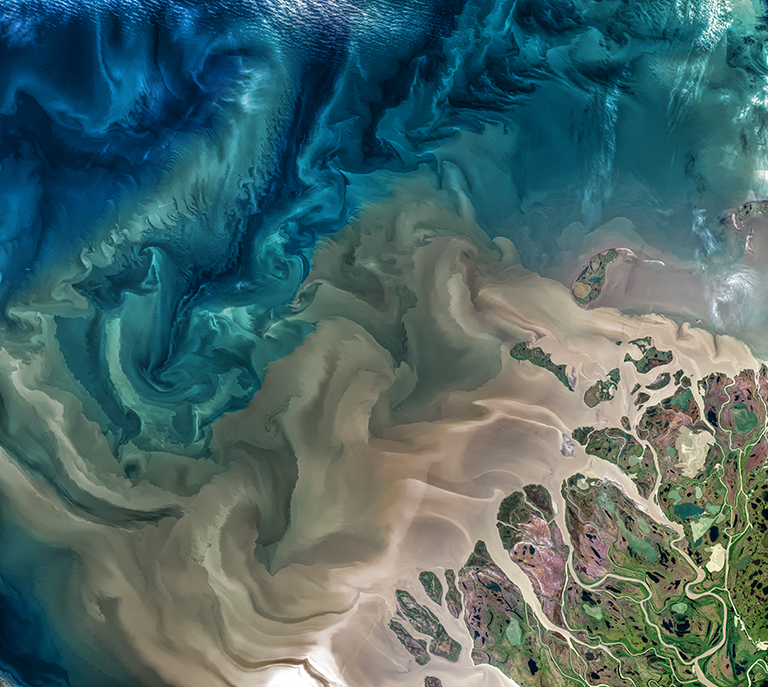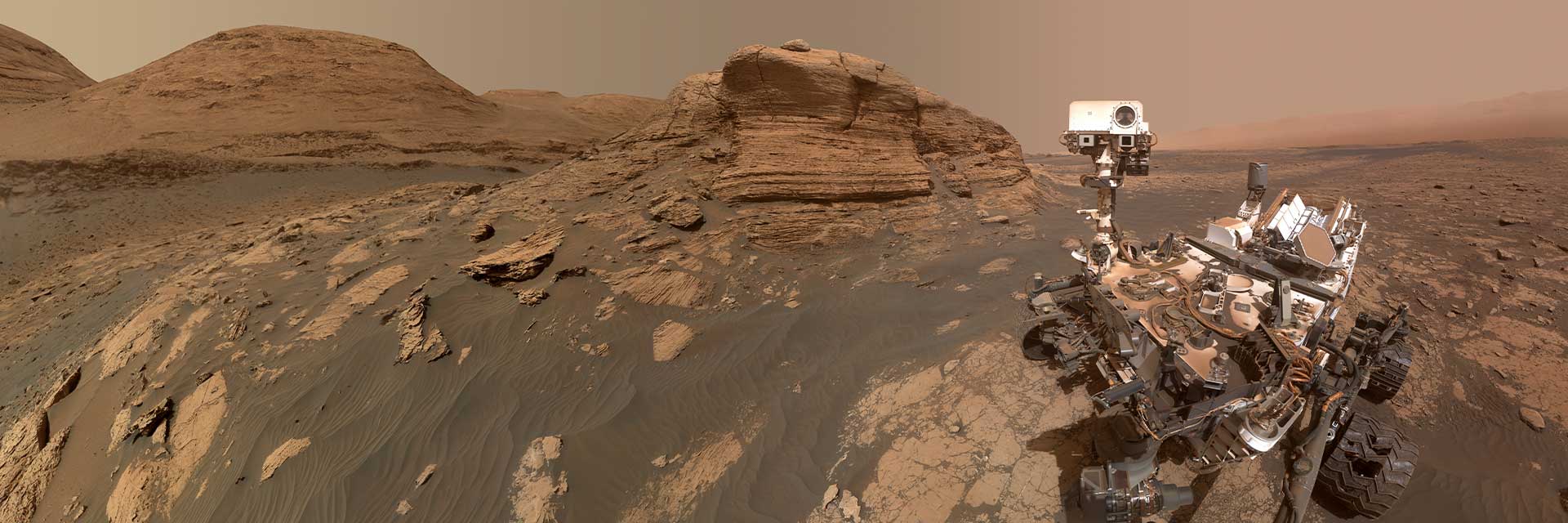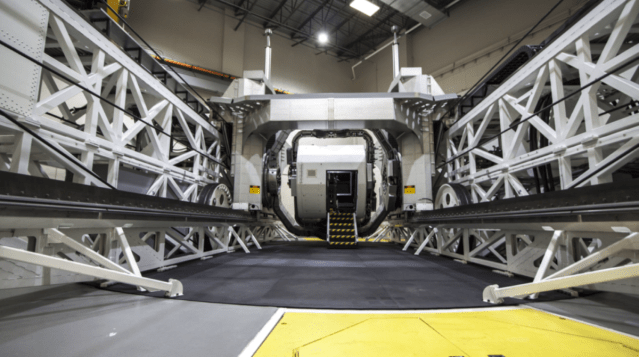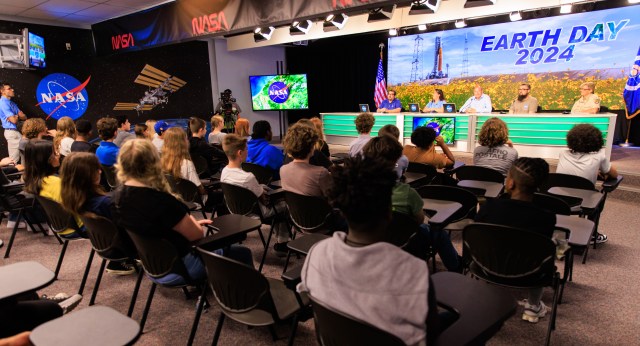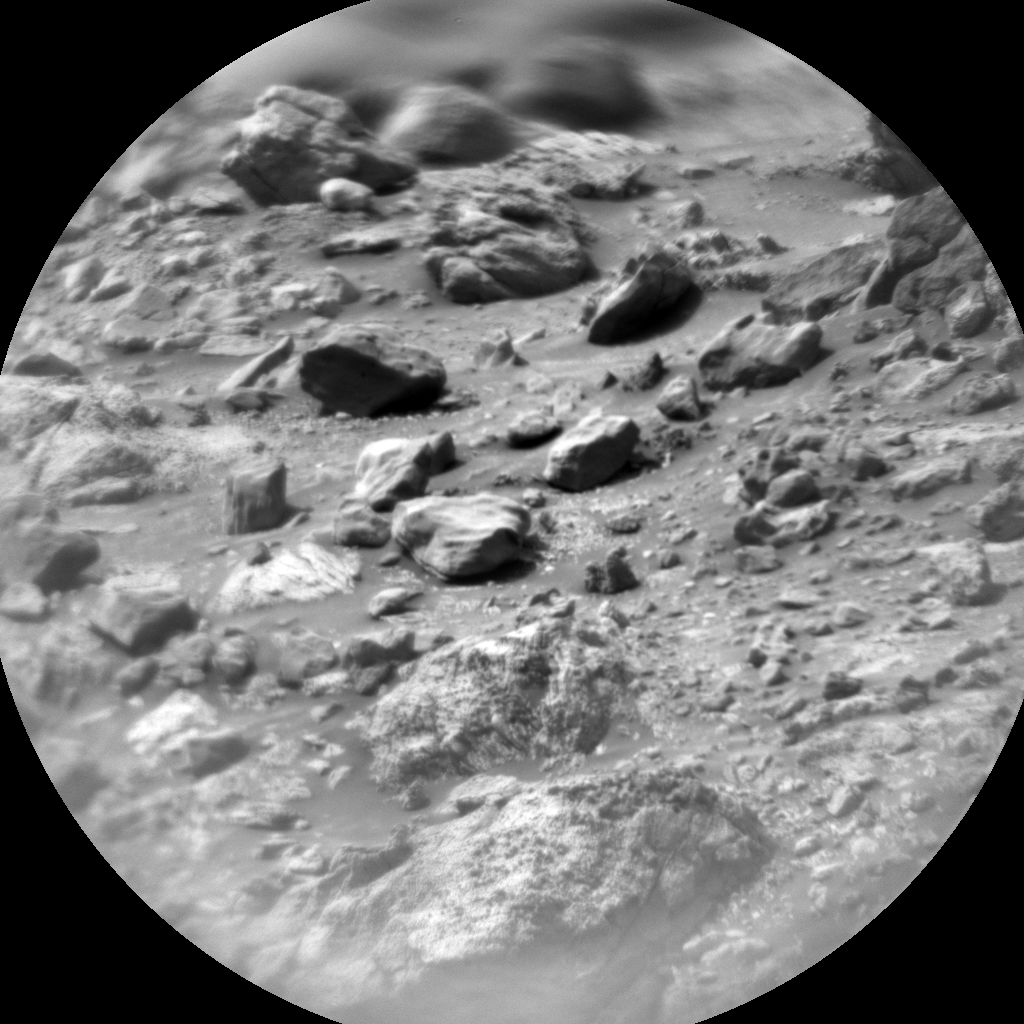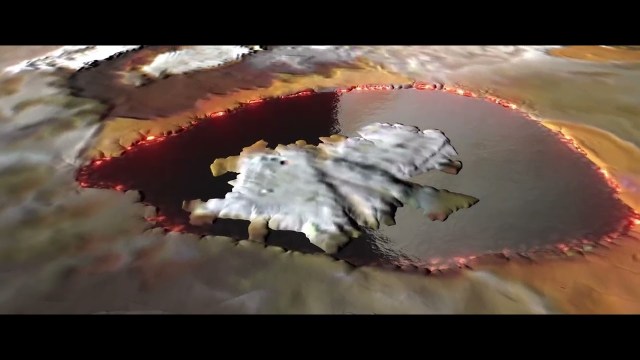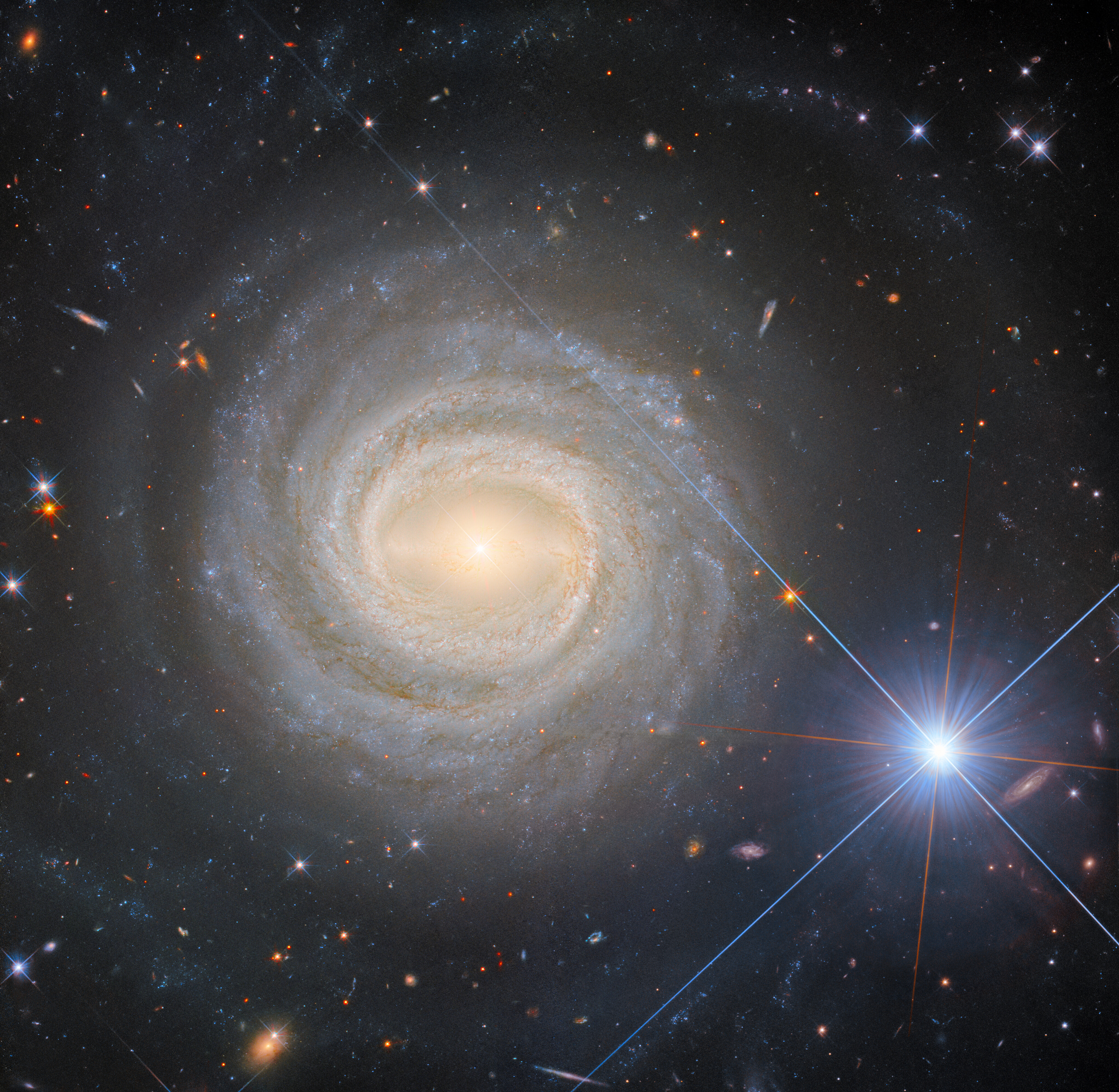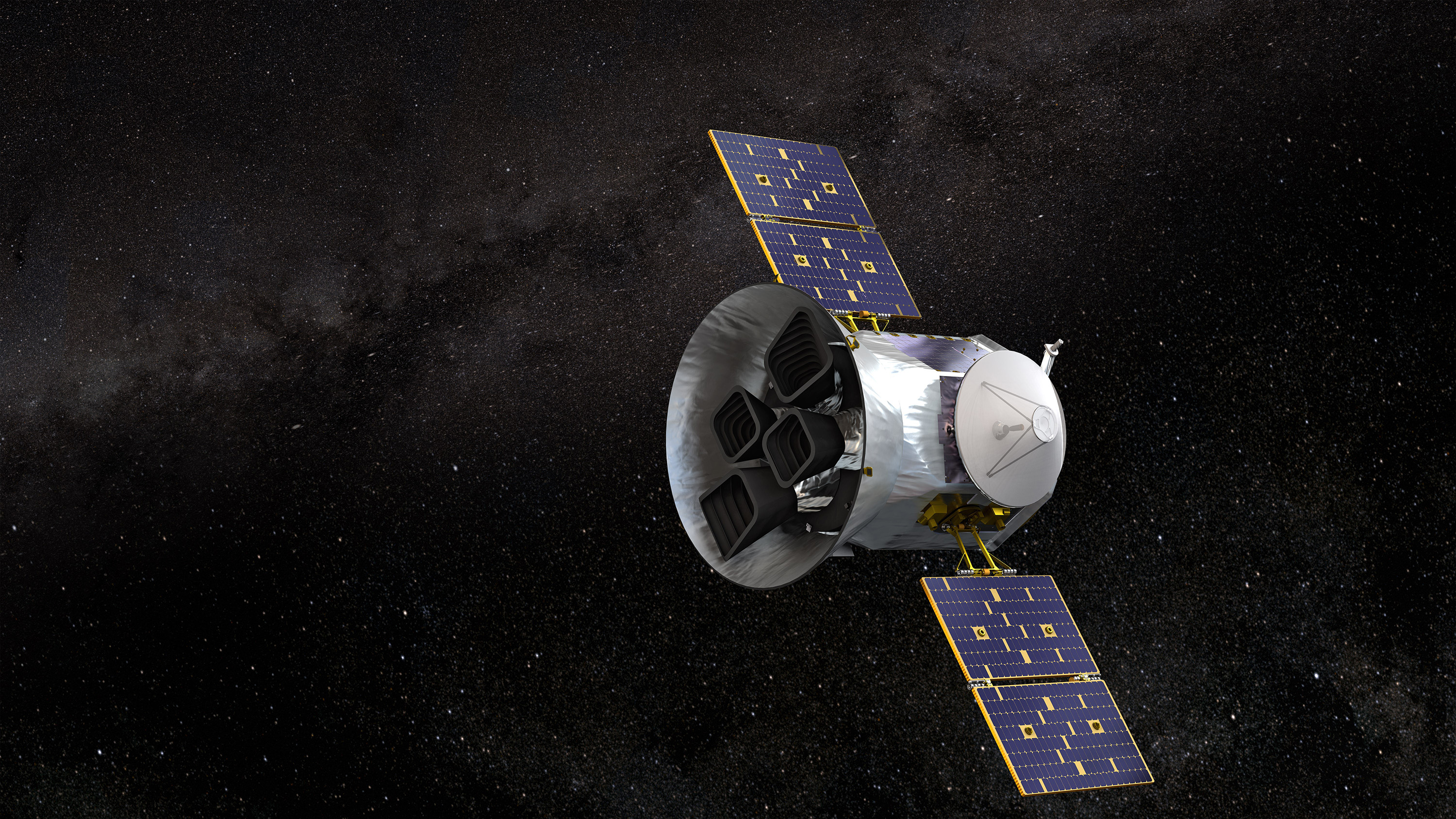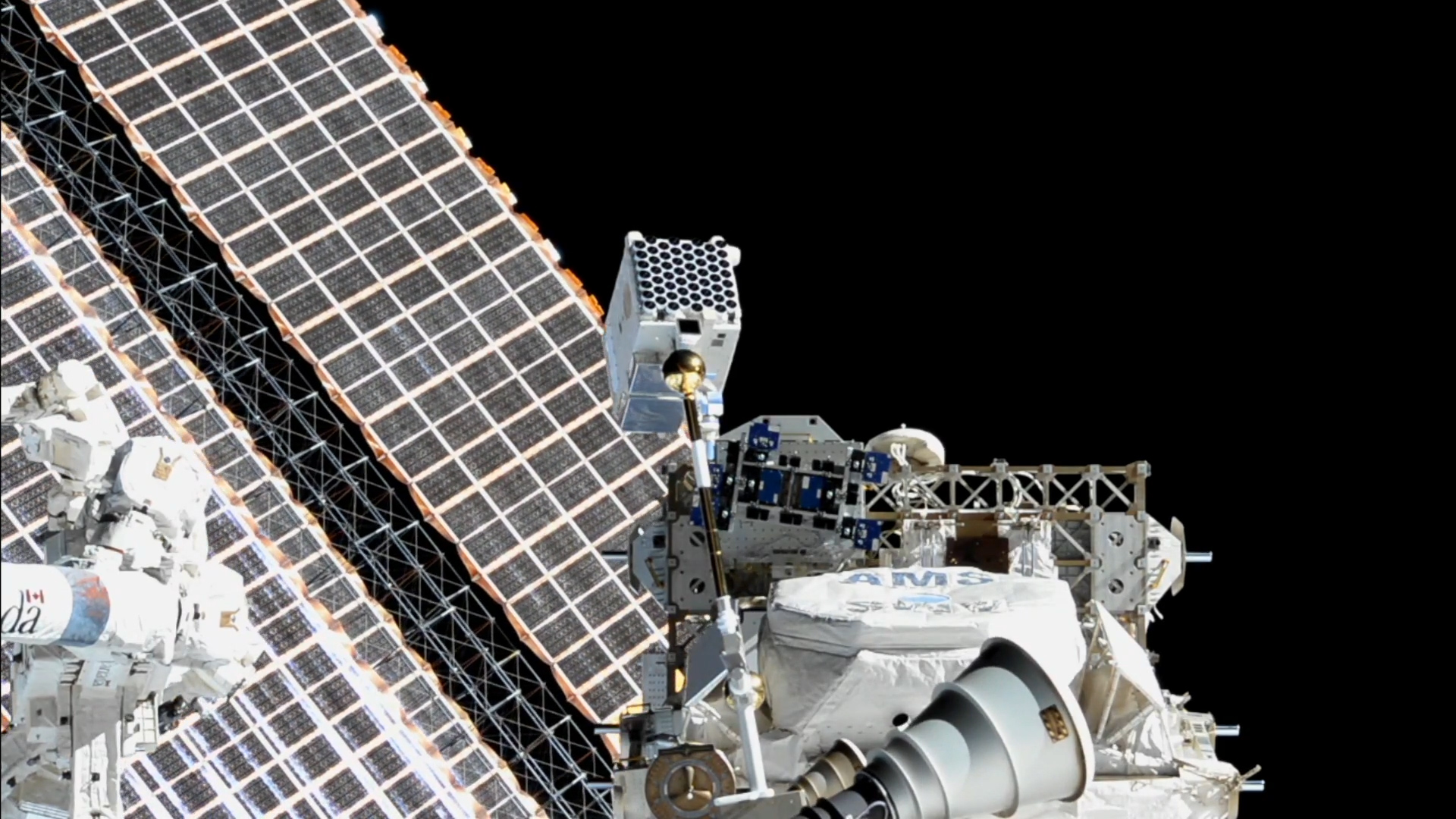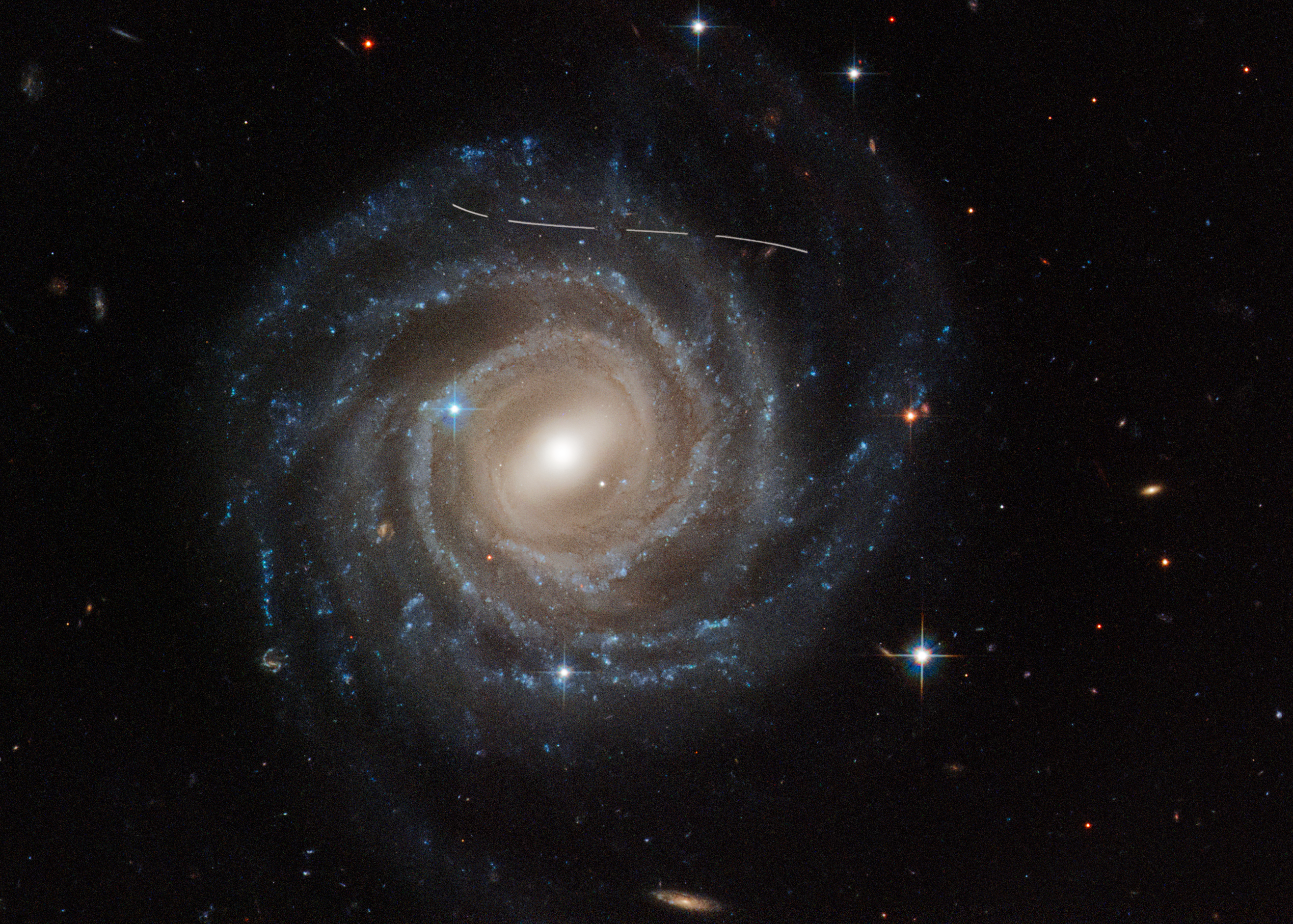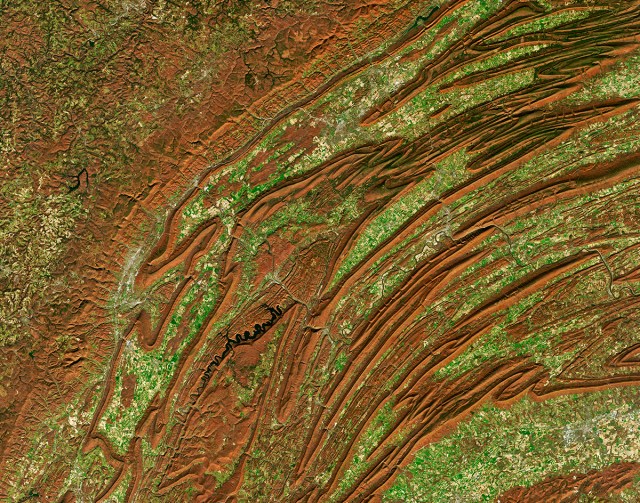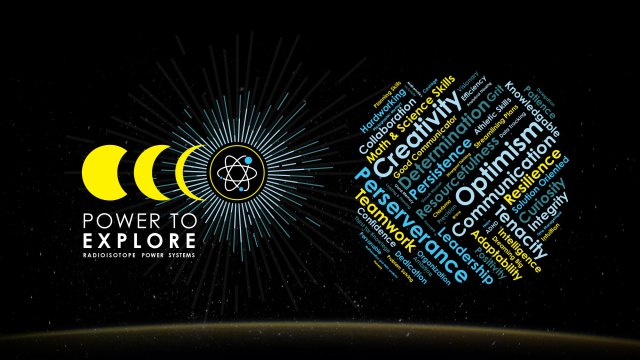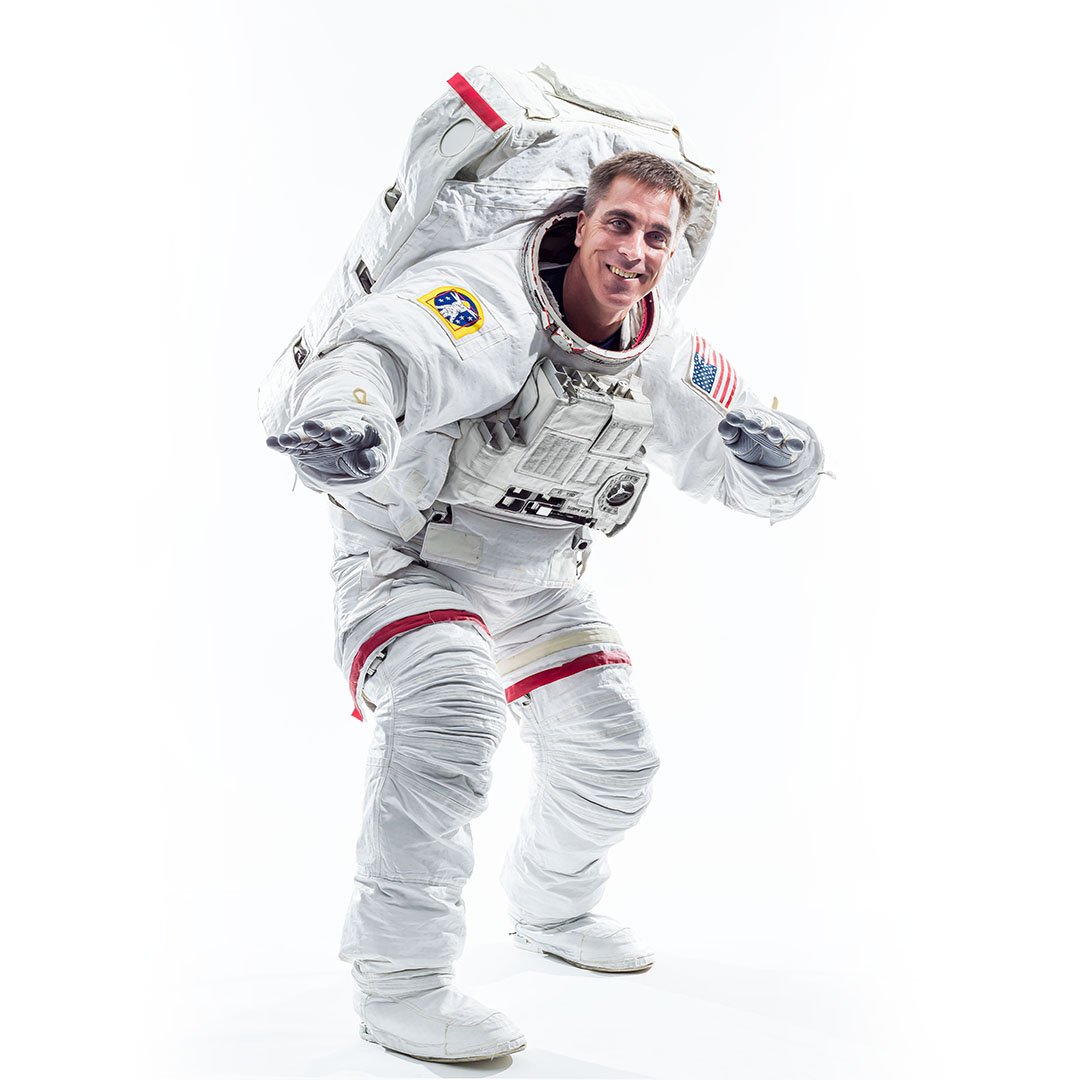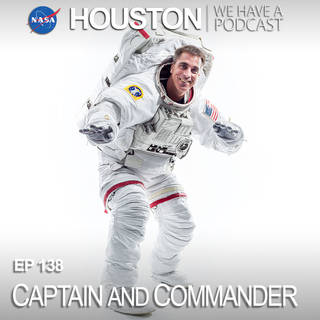
If you’re fascinated by the idea of humans traveling through space and curious about how that all works, you’ve come to the right place.
“Houston We Have a Podcast” is the official podcast of the NASA Johnson Space Center from Houston, Texas, home for NASA’s astronauts and Mission Control Center. Listen to the brightest minds of America’s space agency – astronauts, engineers, scientists and program leaders – discuss exciting topics in engineering, science and technology, sharing their personal stories and expertise on every aspect of human spaceflight. Learn more about how the work being done will help send humans forward to the Moon and on to Mars in the Artemis program.
On Episode 138, Chris Cassidy, NASA astronaut and Navy SEAL, shares his background, his love for physical fitness and math, and the valuable lessons he has learned leading up to his 3rd trip to space in April 2020. This episode was recorded on January 13, 2020.
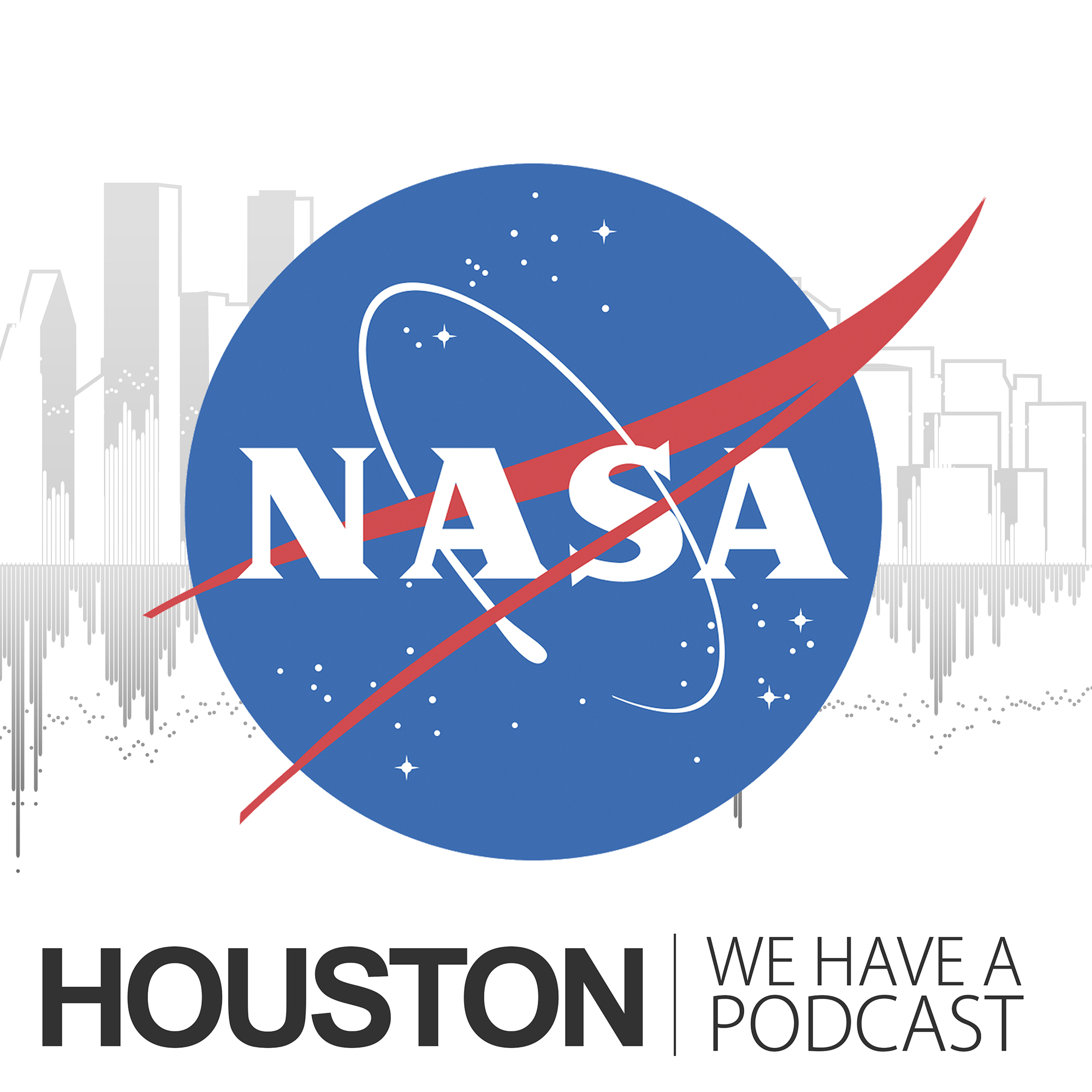
Transcript
Gary Jordan (Host): Houston, we have a podcast. Welcome to the official podcast of the NASA Johnson Space Center, Episode 138, “Captain and Commander,” I’m Gary Jordan and I’ll be your host today. If you’re new to the show, we bring in NASA experts to talk about all the different parts of our space agency. And sometimes we get lucky enough to bring in astronauts to talk about their story. So today we’re going to talk with Chris Cassidy. He’s a U.S. astronaut who’s about to launch to the International Space Station this April 2020, for his third spaceflight. His first being on the space shuttle for STS-127 in 2009 that delivered the final components of the Japanese lab and finished its construction on the space station. And for Expeditions 35 and 36 for a long-duration mission. We talked about his education, studying math and ocean engineering. His experience in the U.S. military as a Navy SEAL. His previous spaceflight experience on the space shuttle and space station. And his expectations for this next long-duration stay where he’ll serve as commander of the International Space Station. So, with no further delay, let’s go light speed and jump right ahead to our talk with Captain Chris Cassidy. Enjoy.
[ Music ]
Host: Chris Cassidy, thanks so much for coming on the podcast with me today.
Chris Cassidy: Absolutely. Thanks.
Host: I really want to dive into your story, starting from the very beginning. I was looking for where you’re from. I think you’re like a lot of astronauts where you have a hometown, but you’re not, you don’t have one place where you were your whole life.
Chris Cassidy: I was born in Salem, Massachusetts. But when I was a young boy, we moved to Maine. And I spent all my formative years in York, Maine. So that’s my, definitely my hometown.
Host: That is your hometown. What’s York, Maine like? What do people not know about it?
Chris Cassidy: York, Maine is a kind of quiet seaside town not far up the coast from Boston. About an hour, hour and 15 minutes north of Boston. On the southern corner of Maine. Wintertime, not a huge population. In the summertime, a huge amount of tourists and vacationers. So, it was a great place to grow up. Plenty of work. I mowed lawns. I worked in restaurants and, in the summers. And then in the fall those people all left. School started. And you, it was small enough of a school, you could play any sport you wanted to all year round. Unlike bigger schools here in Texas where you kind of have to pick a sport and stick to it. But I enjoyed growing up in Maine very, very much.
Host: I feel like a lot of astronauts come from small towns. I think it’s actually really interesting that you’re from a small town in Maine. And then when you go up to the International Space Station, you’ll be greeted by a fellow astronaut from Maine.
Chris Cassidy: Right.
Host: Jessica Meir. Caribou, Maine.
Chris Cassidy: Yep. We, she and I have talked quite a bit about it. We’re excited to get up there. And I think we’ll have some [Public Affairs Office] PAO events with different places around the state. But we’re looking forward to it.
Host: Wonderful. Very much looking forward to that. Now, in terms of what interested you as a kid. Did you have particular interests or hobbies as a kid that may have inspired your career going forward?
Chris Cassidy: Nothing super out of the ordinary. I loved sports. And I was always doing some kind of sport thing as a kid. Whatever season it was, was my favorite sport. I played football. And basketball. And baseball. And a little bit of hockey I played when I was really young. So that just occupied most of my time. My brother and I, we both, think the same way. So, we were always throwing a ball around. And that sort of thing. I liked school, particularly math. But it wasn’t anything that drove me. It was really sports that drove me.
Host: I know physical fitness is one of those key elements of your story. And we’ll get to this later, you becoming a Navy SEAL. But you’ve also completed an Ironman Triathlon, which is, I looked it up. It’s insane. I don’t know how a person could do that. It seems like it’s something that’s very important in your life, physical fitness.
Chris Cassidy: Physical fitness is important for me. And I like a challenge too, you know. And I don’t think I want to go run full distance Ironman Triathlons ever day or every week. But knowing that I could grind through one was very satisfying to me. And just being healthy and fit is important to me.
Host: Yeah. It seems like it’s also this idea of maybe setting a goal and then really pushing yourself to meet that goal.
Chris Cassidy: Exactly.
Host: OK. Now, you said math was an interest to you. Was that something you were naturally good at? Or maybe something that was kind of like physical fitness where you’re pushing yourself to truly understand it?
Chris Cassidy: No, I think I just kind of fell, like my brain is just wired that way for math. I always liked it. I always liked fidgeting with numbers or kind of calculating things. And later, when I got onto more advanced studies, applying those numbers to equations and trying to understand the world around me was something that I liked to dabble in. I never really enjoyed writing about those concepts. Writing was hard for me. In fact, I was a horrible speller. I still am a horrible speller. I rely very heavily on the little red squiggly line in Microsoft Word. But math was always something that came natural to me.
Host: So was, I know math, definitely this idea of a [Science, Technology, Engineering and Math]STEM field. Was space at all something you were interested in as a kid or maybe that came a little bit later?
Chris Cassidy: It definitely came later.
Host: OK.
Chris Cassidy: The only thing I recall even thinking about space was my sophomore year, I guess, in high school. Walking through the cafeteria and seeing the TV. Somebody had wheeled the TV in when the Challenger explosion happened. And I remember seeing that and stopping like everybody else in the cafeteria and watching and thinking about it. And, but I could not tell you who an astronaut was at that time. I couldn’t have told you when the next shuttle was going. I couldn’t even have named what the names of the shuttles were. It was not anything on my radar screen, space. And then it wasn’t until a little bit later, I was in any my Navy career when I learned about it. I met Bill Shepherd. And understood what it meant to be an astronaut, at least what I thought at the time.
Host: Yeah.
Chris Cassidy: And understood the process on how to become one. That I got a little motivated to try.
Host: Interesting. So, I know, I mean, you mentioned military. Was that something that was maybe something that was of interest to you in your earlier childhood career or high school?
Chris Cassidy: So, when I was in high school, we didn’t have the Internet. And we had these books in the guidance counselor’s office that were really thick, like these encyclopedias of colleges. And you, I remember you take in your free time, and you’d go down there, and you’d flip through these 800,000-page books on all the colleges in the country. And I got to the page of the Naval Academy. And I was really captivated by the buildings and the people in uniform. And just how it looked. And the whole thing looked appealing to me. And I sent away for a brochure. I got more information about it. And in reading all that I could consume, I was, just felt like, wow, this is a place for me. I can see myself there. I’m super excited to go there. And I want to do that. And this was, and then I read even more. And it said you don’t have to pay anything to come here. You just have to pay in service to your nation. Which I didn’t even know what that meant. But I was fine with it. Whatever that pay with service to your nation meant, I was cool with it. And so that set me off on the path to try to get to the Naval Academy. It’s a whole other story on how I ended up arriving there. But that was a critical point for me when I realized that.
Host: Yeah.
Chris Cassidy: That’s where I wanted to attend college.
Host: Well, let’s dive into that story of you actually pursuing the Naval Academy. It seems like something about it piqued your interest. But your pursuit of it is quite interesting.
Chris Cassidy: Yeah. The academy has a really good support network once you tap into it. And all service academies. I’m familiar with the Naval Academy. But the other service academies are the same. Where they, you can have what the Navy calls a blue and gold officer. Which is an alumni who can help you with the process. And the process is kind of twofold. You have to get, apply to the academy itself just like a college. And be accepted to the service academy. And you also have to have a congressional or a nomination from your senator or congressman. And that was the part that I learned about, and I pursued and was able to get. But unbeknownst to me, and the guidance I got from the congressional staff office was. We send everything for you to the Naval Academy. You don’t have to do a thing. It’s all handled from here. “Here” being their office. And I, me, 18-year-old guy. And I see a person of authority telling me something. And they seem like very sure. So, I just believed it. And a few months later, when I anticipated, and my other high school classmates were getting answers back from colleges. And I was getting answers from other colleges, not the Naval Academy. That I didn’t hear anything from them. And so, I made a phone call. Found out that there was no paperwork on me in their file system. They didn’t even know who I was. Didn’t have my social security number or anything. And I went there with my friend who was, his dad was going from Maine to Washington. Which is like an eight or nine-hour drive. And he was going for a business trip. And my friend and I accompanied his father. And from Washington, D.C., I drove over to Annapolis about an hour away. And went to the admissions office. And I got put in front of one of the admissions counselors there. It was a Marine Corps officer. And he told me that, he listened to my story and kind of nodded a little bit. And said, “OK, I’ll get back to you.” And then later that next week, when I was back in school, I got a phone call where it was him on the line. And said, “I can get you into the Naval Academy Prep School. Are you interested in going?” And I said, “absolutely, yes, sir. Sign me up.” And that’s how I ended up at the Navy Prep School. Which is a one-year program, mostly for recruited athletes. I wasn’t a recruited athlete or somebody that they see potential in that they want to get a little more academic preparation on. And it was a perfect situation for me. I was young, 18-year-old guy. I went there. Had one year of the military environment as well as the academic environment. And then because, when I got to my freshman year at Navy, all of those things were already part of me. I wasn’t learning the military system at the same time I was learning how to be a student. And so, it just came very natural. And that allowed me to be very successful my first year. And I continued that success through the four years there. So, if that Marine Corps officer had not had believed in me and given me the chance, I wouldn’t have ended up at the Naval Academy. Which would have, a cycle of things that wouldn’t have happened to, including you and I sitting here for this interview about a spaceflight.
Host: That’s right. And it seems like it was partially, yes, his work and his effort to actually get you in. But it was a little bit of your relentless pursuit. You went from not even having an application and no one even knowing you who were to driving down and going face-to-face. And saying, hey, “I really want this. This is something that’s very important to me.”
Chris Cassidy: And I think that’s, I don’t know if I learned that. Or if it’s just part of me. But is to always think about, OK, well, it doesn’t matter how I got here. But these are the circumstances that I’m in. How do I, what’s the solution? What’s the path forward? Make incremental baby steps in getting to where you want to go. And each time re-collect the information. And get, talk to more people. And just kind of pursue things that way. Ultimately, nobody has more interest in your success than you do. And I think that was one of the lessons I learned through that whole process.
Host: Wonderful. Now, you said you had a head start when it came to the Naval Academy because of the prep school. So, you kind of knew the way of the land. And this is where you were studying math?
Chris Cassidy: I was a math major.
Host: You were a math major.
Chris Cassidy: Yeah.
Host: OK. And what — where did it lead to your career next?
Chris Cassidy: So, all the service academies, you, after you spend your four years in academic environment, you then get a commission in whatever service you are. For me it was the Navy. And within the Navy you can do lots of different things. You can be on a ship. You can be on a submarine. You can fly airplanes. You can be a Seabee. A supply officer. A [Sea, Air and Land] SEAL. An explosive ordinance. There’s like lots and lots of different communities in the Navy. I was intrigued by the SEAL teams just by some of the mentors that were stationed at the Naval Academy. In high school I had no idea what a SEAL was. Totally different time than now. Like now, you can’t watch a news talk show without some former special forces person who has their opinion. Or books all over the place about SEALs. And every raid that has happened has somebody writing about it. Completely different time in the 1980s. You know, it wasn’t anything that anybody knew about, including myself. So, when I arrived in Annapolis is when I first saw, when I, a SEAL. And I learned what they do. And I thought, oh, I like the water. I like to do physical stuff. It sounds kind of cool. Maybe I can do it. And so that’s what led me to the SEAL training.
Host: What I like about your story so far is a lot of these key pivotal moments in your story leading up to, and we’re just getting into the SEAL part. It seems like a lot of people start with dreams or just something they read or something they see. And they actively pursue it. It seems like you get to a point where you’re looking forward to, what should I do next? And then some opportunity or something comes up. Like, for example, you said SEAL mentors. Maybe someone you talked to. You didn’t know where you’re going in this Naval Academy. But you maybe talked to just the right person that influenced your career. And you say, that’s it. That’s what I’m doing now. And you pursue that going forward. I like that about your story. It seems like it’s these, it’s not so much a well-planned out thing or pursuing a dream. It’s just your jumping on opportunities.
Chris Cassidy: And figuring out what’s required to get to the next step. And say, OK, I’ll do those couple things and see if the opportunity’s still there. But at least let other people tell me no instead of me telling me no.
Host: Yeah. So what qualities and what about you had to change? Or what did you learn in your time as a Navy SEAL?
Chris Cassidy: Learned lots of things. I learned, first and foremost, that difficult situations are not accomplished by individuals. They’re accomplished by teamwork. Camaraderie. Group grit. And equally so that negativity in that teamwork is not helpful. Not a whole lot of examples of that in my time in the SEAL teams. But I can remember a few times where some, in SEAL training where somebody got down. And they can, you can feel the momentum bringing everybody down. This, we’re talking right now on a Monday and just the last couple days was a NFL playoff football. And they have the thing called momentum in sports. And you can tell when a negative play happens. A blocked punt or an intersection. It swings, and it just kind of gets this wave of negative momentum on that team. And the other guys capitalize on it. And I think the same thing is true in small units. Where, or even just business or whatever. Somebody can bring, swing the momentum in a negative way. Or you’re on a space mission, and you get the phone call that you have to stay an extra three weeks. And that’s a momentum shift. And the mark, one of the things I learned in the SEAL teams is the mark of a really good leadership and a good team is you can overcome those just with everybody jumping on it. And one of the guys in my SEAL platoon used to say, this is a blank sandwich. And we all got to take a bite of it, you know. Let’s share, distribute it amongst all of us, and it won’t be so bad.
Host: Yeah. And it sounds like a very powerful thing that is required to overcome. Because you said just negativity, you know, we talk about it a lot just in our own lives. But when you’re talking about a team having to accomplish a mission or a goal, having negativity swing the course of, you said even in a football game. That could swing the course, the shift of a football game. And then next thing you know, the enemy, the opposing team is taking advantage of that. Really important to keep away that negativity. I’m sure, and we can talk about this later whenever we get to some of your spaceflight experience. It’s something that you’ve taken with you going forward.
Chris Cassidy: Yeah. I mean, all of us as astronauts, we strive to not be the ones that cause the mission to not go well. In other words, we don’t want to make mistakes. We don’t want to make errors. We want to execute the plan that the team delivers to us. But we’re all human. Astronauts too. And we make mistakes. And any one of us on a mission has made a mistake. Maybe minor. Maybe you put the, your blood sample in the wrong drawer of the freezer. And then three months later to go get it, you can’t find your blood because it’s in the opposite freezer. Or maybe it’s bigger. Where you open the valve to space, and you start dumping out air. And you lose some air. I mean, don’t want to think about the ones that are harmful to people. But we don’t want to make any of those mistakes. And when you make them, you have to just forget about it in a way. You know, you don’t want to totally forget so that you make the same one. But you can’t dwell on it. You got to move forward and, darn it. That’s about as far as you can go. And then move on. And just not make any more.
Host: That’s right. Learn from it. That’s kind of what you’re saying.
Chris Cassidy: Yeah.
Host: Is not to dwell on it. But to look at, OK, now, kind of like what you were saying. This is my situation now.
Chris Cassidy: Yeah.
Host: What can I do to fix it going forward?
Chris Cassidy: What can I go forward with, yeah.
Host: Yeah. So, we talked about your experience and lessons learned from being on the SEAL team. What was next for you after SEAL?
Chris Cassidy: During one of my SEAL deployments, I had an application pending to be an astronaut. Actually, back up one real quickly. I had applied previous time, which was, would have been for the astronaut class of 2000. And I did not get selected. I did not get an interview. In hindsight, I was in graduate school, but I didn’t have a graduate degree. And I had less leadership experience in the SEAL team. Four years later, which was the class I was selected in, 2004, I had completed a master’s degree. I more leadership experience. And it was after September 11th. So, the nation was in that conflict. And I’d been part of it. So, I think that was all, that all contributed to me being a more well-rounded applicant. So that was the next thing. And I was, I — the astronaut interview process is long. I had my interview in Houston in September. And the next week I left for a six-month deployment to Afghanistan. So, the whole time I was in Afghanistan, I was wondering what was the status of my application. And it’s not like a, there’s no website that says you’re this far along in the process. Or your application is now being reviewed by the chief astronaut. That doesn’t happen. So, you kind of don’t know where you stand in the process. But I had told the selection office that I was really unreachable by phone in a reliable way. So, if you needed to talk to me, send me an e-mail for a day or two later to talk, to give you a call. And I will call. And so, I received such an e-mail from this guy, gentleman named Duane Ross who was the selection committee chair. And he said, call the office at, on Monday at noon or whatever. Well, it just so happened that that weekend was the end of our six-month deployment. And I had arrived back in my house in Norfolk, Virginia. And, so I was actually called from my home in Virginia on that appointed time while I was going to call. And the clock was ticking 11:57, 11:58. And then the phone rang. And it was a Houston telephone number. And I answered. And it was Kent Rominger, who was the chief astronaut at the time, asking me if I wanted to be an astronaut. So that was a super cool time. Super cool phone call. I’ll never forget it. And another one of those things where it sets your life in a different path.
Host: Wow. It seems like, wait, so going back, taking a step back. It seems like astronaut became very much a possibility while were you still a SEAL?
Chris Cassidy: It did. And, like I said, I had that interview. Heard nothing. Except for maybe in the fall, late fall, closer to Christmas or whatever of that year, September was my interview. The FBI came knocking on the door of the little old lady who lived next door to us. And we didn’t know this, but then a week later the FBI — the little old lady came out as my wife was mowing the lawn. And she came up to her and said, “the FBI was here asking questions about Chris’ background.” And that was a clue, the very first clue that I had made it kind of farther along in the process. That NASA was interested in me enough to spend the resources to have an interview. And, so, yeah, that was the first clue I had that there was a hope.
Host: Wow. So, what made you want to pursue sending your application in the first place?
Chris Cassidy: It was really nothing that I felt like I wouldn’t be a complete person if I didn’t get selected as an astronaut. I was very happy in my job in the SEAL teams. I loved it. And, but I remember thinking, oh, that would be super cool. I would really enjoy going to space. I mean, of course, there’s whole lot more to the job as an astronaut. But you don’t know that when you’re applying. You just see people in a spacesuit, riding a rocket or going to an doing an EVA. I thought that would be really awesome. I would love to do that. Why don’t I try. And that’s, and, again, I mentioned it earlier in this podcast. I had met Bill Shepherd. And remember thinking to myself, he went to the Naval Academy and went to MIT, and so have I. So maybe this is something that’s of interest to NASA. And so why don’t I try. And that’s all it was. Why don’t I try. See where it gets, see where it leads.
Host: Another moment in your story of —
Chris Cassidy: Yeah.
Host: — Finding an opportunity and capitalizing on it. So, you got that wonderful call in Norfolk, Virginia. Talk about coming to NASA. Some of your first days. First impressions. It was a little bit different from being a Navy SEAL, I’m assuming.
Chris Cassidy: Yep. Ironically, I was, in the Navy, you move every couple of years. You change your duty stations. And I was set to move that summer anyway. So, it was really a matter of if our household goods were being shipped to California or somewhere else. And we revectored the household goods to Houston. And it showed up here. I remember, it’s kind of funny. My son was little. He was maybe five or six years old. And I came home on like the second day of work. And he came running up to me and said, “Dad, did you go to the Moon today?” And it just made me laugh so hard because he was so sincere. And thought that, maybe that was a chance that I could have gone to the Moon on a Tuesday. But I was really just getting my badge and finding out where the bathroom is and all that kind of stuff.
Host: I like that. [Laughter]
Chris Cassidy: Yeah.
Host: Not today, maybe tomorrow. [Laughter]
Chris Cassidy: Not today, maybe check with me on Thursday.
Host: All right. So, let’s go to, let’s jump ahead to your first spaceflight. I know you flew in 2009 on STS-127 on the space shuttle. Was what was that like?
Chris Cassidy: So that was my first mission. And it’s different. You know, each mission, as you gain more experience, is different. The first one you are kind of wide-eyed and taking it all in. And every single class, you don’t know, is this the most important thing I’m being told? Or is this something I don’t really have to put in the forefront of my memory? And you’re just soaking it all in the whole training process. You rely heavily on the experienced people. And I was all of that. Nothing drastically sticks out from my preparation, in my memory about the preparation. Other than we had five spacewalks on our mission. So, we spent quite a bit of timeout at the [Neutral Buoyancy Laboratory] NBL as a crew. We, our crew has the dubious honor of, I believe, having the most launch delays or tied or something. We did not launch until the sixth attempt.
Host: Wow.
Chris Cassidy: And, which sounds, it’s hard to appreciate what that means just sitting here talking over this podcast. But think about six days thinking that you’re waking up and you’re going to go to bed that night in space. And it not happening. And what that means to your launch guests. You know, they’re all there. You have 250 launch guests at the beginning. By the time I launched, I think I had 11. Everybody had to go onto their normal lives and back to work or whatever. So that part was all part of the process. And then the mission was a whirlwind, two weeks of a space shuttle goes by so fast. You’re busy, busy, busy, busy. And then you go to bed. And you get up, and you do it all again. Before you know it, it’s halfway through. Before you know it, you’re landing. And then somebody puts together a video of what you did. And you go tell people about it. And you watch the video and go, oh, yeah. I guess I was there. I don’t remember that, but I guess I was there because you got me on video. But just a fun experience. Great crew. Great crewmates. Great friends. I think our, when we arrived, we were the first time that 13 people had been on the space station. There was a crew of six and then we brought our seven from the shuttle. So just neat times.
Host: Yeah, sounds crowded.
Chris Cassidy: It was.
Host: So how does that differ from your next spaceflight? Which was long-duration on the space station with a few less people.
Chris Cassidy: Yeah. So, we were still, so on my next mission, I flew on a Soyuz, three-person crew. I had two cosmonaut crewmates. Pavel Vinogradov. Sasha Misurkin. A shuttle launch, all the preparation is here in Houston. You travel to Florida a few times. But, in general, you’re always in Houston for training. And you have seven people. You’re all reading American-made checklists in English. And talking to people in Houston. On the Soyuz, the checklists were all in Russian. It’s a very small capsule. And we’re talking Russian inside the capsule. And we’re speaking on the radio to the Russian flight control team. And so, all of those things were drastically different. I was the lead of the U.S. side of the space station. So, I felt a lot more, a great deal more of responsibility of maintaining and running the space station. And when I arrived, Tom Marshburn and Chris Hadfield were there. And I could lean on their experience. Because they were on the tail end of their six months when I got there. And I relied on their experience to get me up to speed. But that was only for, I forget, seven weeks or something like that. At most two months. And then they left. And those duties fell on me. And I remember feeling a lot of satisfaction. Like, wow, I understand this space station. I really can hear the noises and understand if it’s a good noise or a funny noise. And I liked it a lot. And then Karen and Luca arrived. And, together as a crew, we got them up to speed. And then, and the three of us, I think, did a pretty satisfying job. Or at least we felt we did for the rest of the mission. So, the short answer to your question is, the shuttle, I felt, I was the new guy. And wide-eyed and listening to others. My next mission I felt this sense of pride that I was in a position to understand all of the space station.
Host: Do you feel like because of that experience, particularly this last one of feeling that sense of experience. Do you feel even more ready now going into this next one?
Chris Cassidy: This next one’s even more different. Like I’ve come off of a couple years in management position as the chief astronaut. And now I’ve been in training again for the last few years. And the space station is, runs really well. And does a lot of science now. Even more than we did back seven years ago. So, I’m excited to experience what it’s like to just almost all be about science and research. So, yeah, every mission’s different. Because you’re different. Your crew complement it different. The tasks that you do are different. So, it will just be a different experience.
Host: Along the lines of different experiences, I know you’ve had different roles on the ground here at NASA. One of them being the chief of the astronaut office. Can you tell me about what you learned from maybe some of the other chief astronauts? And what you, what values you put forward when you were chief?
Chris Cassidy: So, I took over from, as chief from Bob Behnken. And he took over from Peggy Whitson. And Peggy was in training to fly on her last flight. And Bob left the office to begin preparation for commercial crew. So, when I became chief, I had two former chiefs that “worked” for me. Which is quite different. In the military, where my background is, if the commanding officer turns over to the new commanding officer, the old one leaves and goes to some other job. It would be unheard of. It just wouldn’t happen for the old commanding officer to just fold back and be a member of the ranks in the unit.
Host: Interesting.
Chris Cassidy: So, it was not something that I was used to. But I realized that we have a mature group of people in the astronaut office. And the ego is not there to feel like, oh, you can’t boss. You’re not the boss of me kind of thing. Not at all. It’s very helpful. Everybody’s out to make the office better. And I was really lucky to have Peggy and Bob working together with me. And there’s, it’s kind of cool that there’s a good chance that I could be in space with Bob. And he and Doug Hurley are going to be on the test flight of Space X. Interesting side note. My first flight was with Doug Hurley on the shuttle. My second flight was with Karen Nyberg. Of course, they’re husband and wife. And now my third flight could be with Doug again. So, I was joking with them recently about it’s, we alternate. I alternate members of their family that I fly in space with. And it’s Doug’s turn now.
Host: Yeah. You say every spaceflight’s different as you were going through all of your spaceflight experience. And you say this next one coming up is probably going to be different. That’s one of the key different elements right there. Is now we’re talking about, you talked about training in Houston for the shuttle. You talk about training in Houston with, everything was in English. And, you know, you’re local to the United States. You have to do, you have to go to Russia to launch on the Soyuz. Tell me about what this means for commercial crew? You say you might even see some of your crewmates up on the space station launching on American vehicles. It’s a little bit different this time. What does that mean to you?
Chris Cassidy: The whole commercial crew thing? Before I dive into that. Real quick, I also.
Host: Oh, yeah.
Chris Cassidy: I’ve never been in space without Tom Marshburn. So, I won’t know what to do without waking up and seeing.
Host: That’s true he was on shuttle and saw him on 35.
Chris Cassidy: He was on shuttle. Yeah, exactly. So, but in all seriousness to answer your question. The commercial crew thing I think is just an exciting time for our nation. You know, we’re not launching people from Florida right now. And we soon will be. That’s the bottom line. And we’ve got, whether it’s a commercial company or a company that has a contract from NASA to build it. To me, that’s all interesting. But the bottom line is a rocket with an American flag is going to launch from the coast of Florida.
Host: Yeah.
Chris Cassidy: That’s what I’m excited about.
Host: Very cool.
Chris Cassidy: And my colleagues are going to get in it and ride to the space station. And I’m going to see them.
Host: That’s awesome. Now, is there anything looking forward to this mission that you’d maybe like to do differently? Or make sure you capitalize on? Maybe something that, you know, you were in space for a long time in this last long-duration spaceflight. But is there something that maybe you didn’t get to that you’d like to do this time around?
Chris Cassidy: I have no real special projects. I — you never know when it could be your last mission. I don’t know what is in store for me after the flight. Whether I’ll still be at NASA or not. I mean, I think I will be. But you never know. And, therefore, you never know if you’re going to see that window out of the Cupola again. When, on my first mission, I just assumed that I would go to space again. And my second mission, I was pretty sure I wasn’t going anywhere. But, and I was pretty sure that there would be another opportunity to get to space. Now I’m 50 years old. It’s taken, it was 2009 to ’13. So, it’s four years between my first and second. It’s been seven between my second and third. I don’t know if I have the time and, or the health. You never know if something’s going to prevent you from flying in space. So that’s a long way of saying, I’m just going to really enjoy being there. And looking out the window. And seeing our magnificent planet through the Cupola windows. And taking pictures of the Earth. Taking pictures of the places that I’ve been to. Taking pictures of the places that I want to go to. And calling friends and family from space. For some reason people get a kick out of getting a phone call from space. I have, the phone numbers stored on my phone as International Space Station. So, because, maybe it’s because my time as chief when it was, I regularly spoke to the space station. It’s not something I get excited about anymore. But I’m excited to share that enthusiasm with others.
Host: Yeah, yeah. That’s so funny that you think it’s a normal thing. Oh, man. I would be so excited if I got that phone call. So along that theme, along, you know, you’re thinking about, I don’t know what the future holds. This might be my last spaceflight. I’m going to enjoy it. Thinking about generations of astronauts coming after you. Just at the time of this recording, we just had a graduation event. And had all these new class of astronauts come in that are looking forward to all kinds of exciting things. Commercial crew being one of them. We talked about Artemis during this event, going to the Moon. There’s a lot to look forward to. But in your experience, you being an experienced astronaut. What would you like to say to those astronauts and to generations of astronauts coming after that? Some kind of value or lesson to take away from this in your experience?
Chris Cassidy: Yeah, that’s a good question. Because there’s lots of aspects I could talk about.
Host: Yeah.
Chris Cassidy: Like the training. The PAO aspect of it. The operational part. You know, what are you going to do? It’s very, it’s easy in this job to think that you’re just doing the job for ourselves. And it’s taken me a lot of maturity to realize that we are doing this job for our country. And we are doing this job for other people. And it’s not about us. It’s not about us as individuals or even as a collective group of astronauts. It’s about what our country is doing. And we’re a member of the team that pulls off a really cool mission for our country. And so, to all of those that are new and that are not yet astronauts that will be, it’s just keep that in mind. You know, you’re excited to come here. Excited to put on a spacesuit. Get in a pool. Put on a spacesuit. Get on a rocket. Walk around on some dusty place. But, ultimately, it’s about being a member of the United States of America. Being a member of an international group of countries that are doing the mission. And doing things that make the world better.
Host: It’s an amazing lesson. Chris Cassidy, I really appreciate your time today for coming on the podcast. And best of luck on your next mission.
Chris Cassidy: Thanks a lot, Gary, appreciate it.
[ Music ]
Host: Hey, thanks for sticking around. Hope you enjoyed this conversation we had with Captain Chris Cassidy just before his launch to the International Space Station. You can watch it live. Go to NASA.gov/ntv to find the latest schedule. And see it there along with a couple of more places you can see it. Facebook will probably be streaming it. And then NASA TV. You can check out this podcast and some of the other episodes and the many other NASA podcasts at nasa.gov/podcasts. Keep up with the latest on the International Space Station with NASA.gov/iss. And the latest with the commercial crew program at NASA.gov/commercialcrew. Check us out on Facebook, Twitter, and Instagram. We tweet out and post on the NASA Johnson Space Center pages of Facebook, Instagram and Twitter. Use the hashtag #AskNASA on your favorite platform to submit an idea for the show. Just make sure to mention it’s for Houston, We Have a Podcast. This episode was recorded on January 13th, 2020. Thanks to Alex Perryman, Pat Ryan, Norah Moran, Belinda Pulido, John Streeter, Kelly Humphries and Brandi Dean. Thanks again to Captain Chris Cassidy for coming on the show. Godspeed. We’ll be back next week

